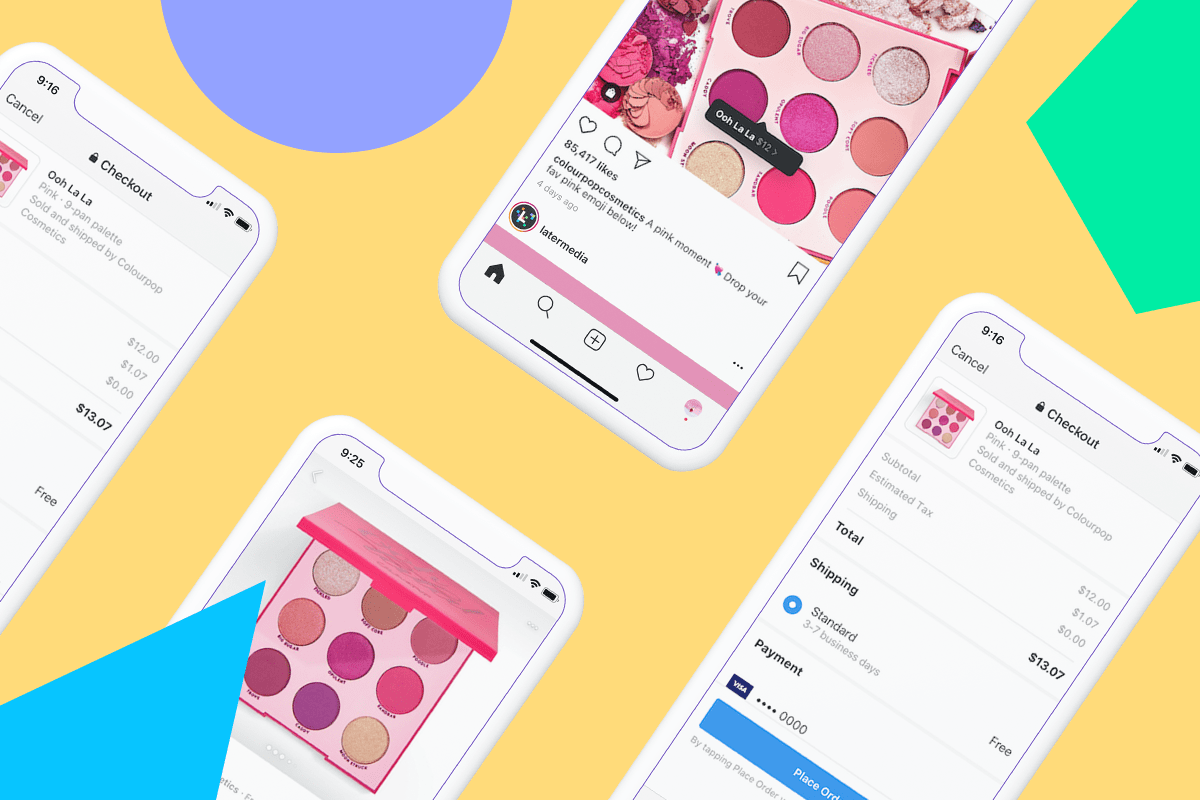There’s no doubt that the COVID-19 pandemic has added to small business challenges around the world, regardless of size, location, or funding.
Facebook’s new report on the State of Small Business surveyed 86,000 owners, managers, and workers in companies across the US with fewer than 500 employees. It paints a clear picture of the many challenges that small businesses are facing as a result of COVID-19.
We compiled some of the key points from the report, along with tips on how small businesses can weather the COVID-19 storm. Let’s get started!
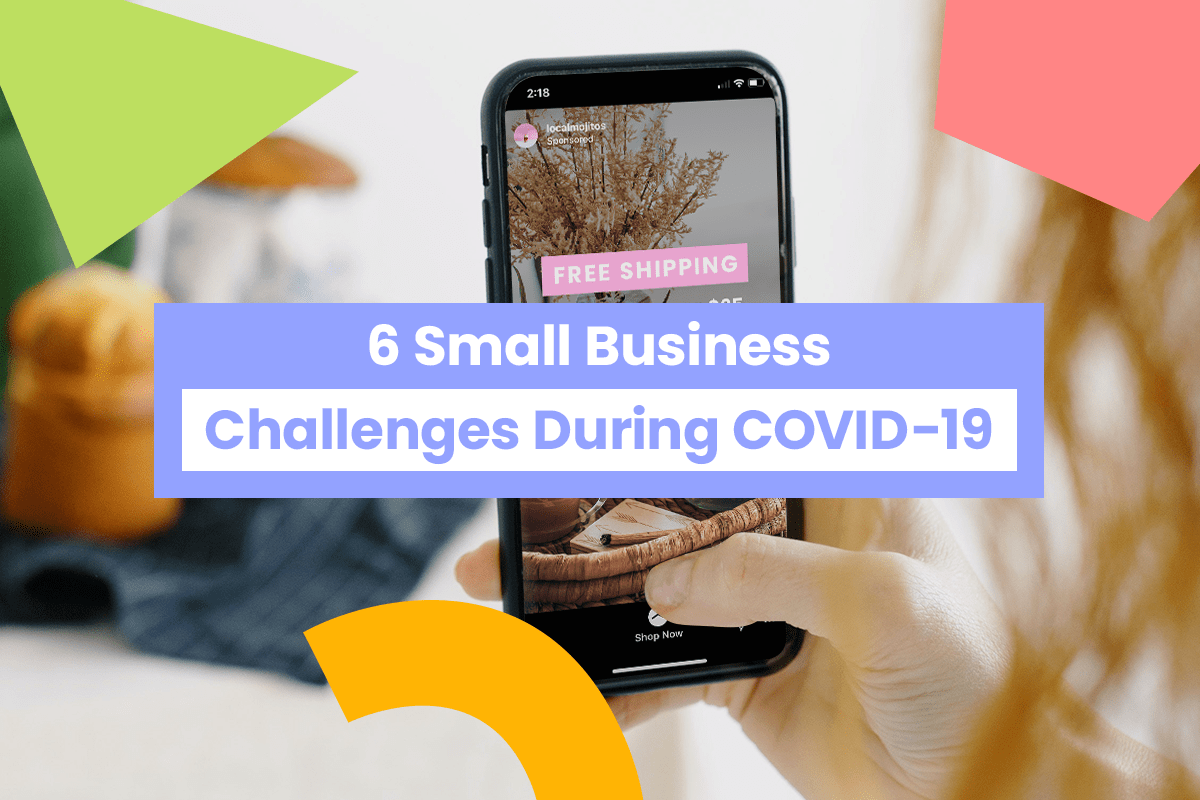
Small Business Challenges #1: Small Businesses are Closing Their Doors & Facing an Uncertain Future
There’s no doubt that small businesses are feeling the impact of COVID-19.
According to Facebook’s survey, 31% of small and medium-sized businesses have shut down in the last 3 months.
But the situation is particularly bad for personal business (52% of which report shutting down), hotels, cafes, and restaurants (43%) and services like wellness, grooming, fitness, or other professional services (41%).
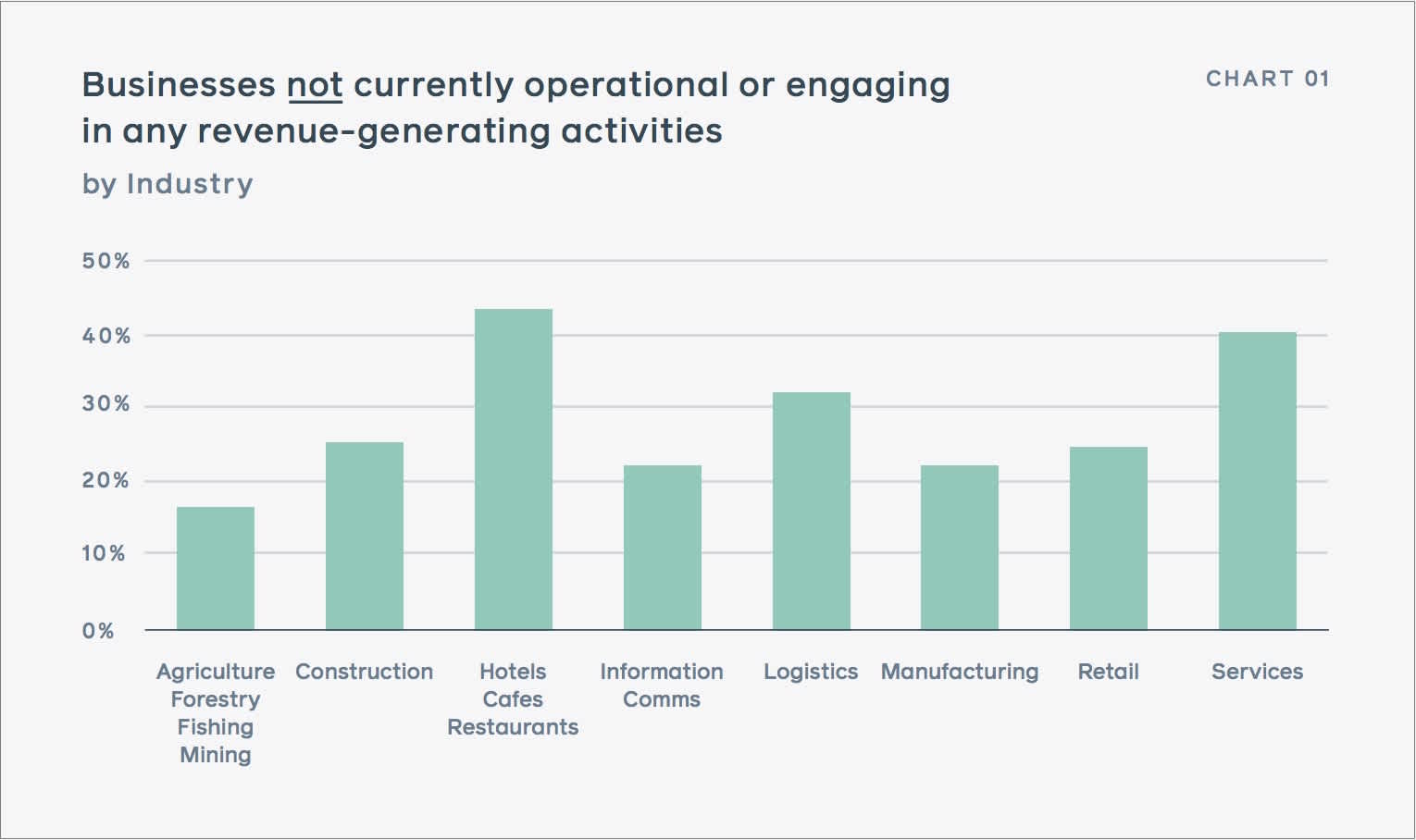
Among the reasons cited by business owners as to what caused them to close, a majority said it was necessary to comply with orders by governments or health authorities, while a smaller share claimed it was due to financial challenges (9%) or a lack of client demand (7%).
But even when businesses stay open, they still face significant challenges, including access to capital and customers.
That’s why it’s so important to support small businesses right now. And luckily, there are plenty of ways to do it — whether it’s buying gift cards, shopping online, or tuning into virtual classes!
According to a report from Cox Business, some of the more popular to support small businesses during the era of social distancing have included ordering takeout/delivery from local restaurants, increasing the amount tipped at them, and shopping online with local retailers.
Even tech giants like Instagram are jumping on the buy-local trend.
Ever since COVID-19 took hold globally, the company has been laser-focused on providing tools and features to support small businesses. There’s the food delivery & gift card stickers Instagram rolled out in mid-April, Facebook’s new small business grants program, and a lot more.

Want to learn more about the tools and features Instagram has set up to support small businesses? Check out this blog post where we give a rundown of the most exciting features launching this year.
Small Business Challenges #2: Access to Capital
Some of the biggest challenges among open businesses are accessing the capital they need to stay afloat, keeping their supply lines open, making sure their employees can work remotely, and balancing increased family demands.
According to Facebook’s survey, while two-thirds of closed businesses expect to re-open in the future, (including a slightly higher percentage of women than men), among the one-third who did not, 34% said it will be because they can’t pay their bills or their rent.
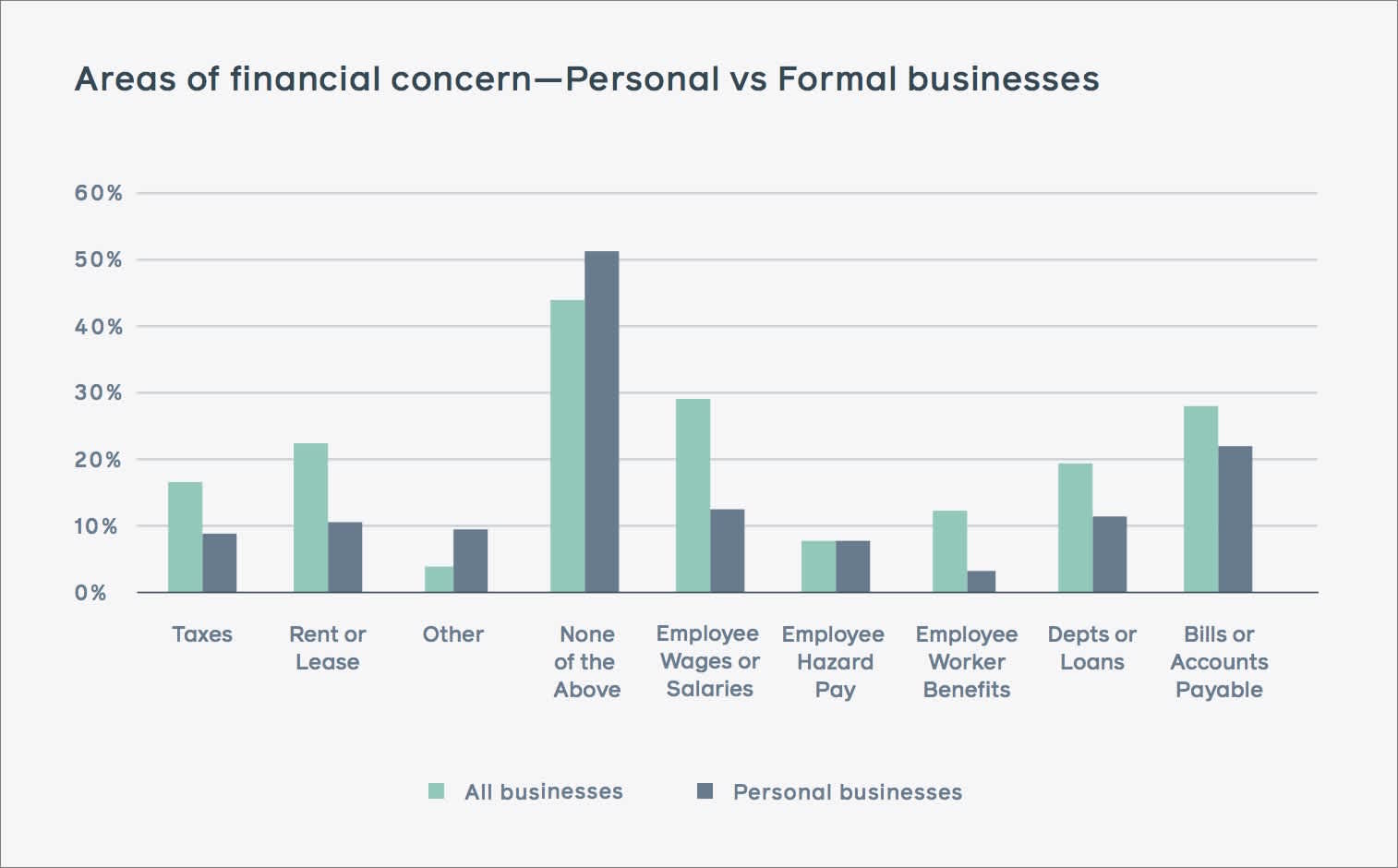
Overall, 3 out of 5 businesses surveyed (60%) say that they are struggling with some aspect of their company’s finances.
As far as access to finance and capital goes, the biggest concerns were paying their workers’ salaries and wages (29%), and paying their bills (28%).
For hotels, restaurants, and cafes (basically, any business in the hospitality sector), those numbers rose to 44% and 54%, respectively.
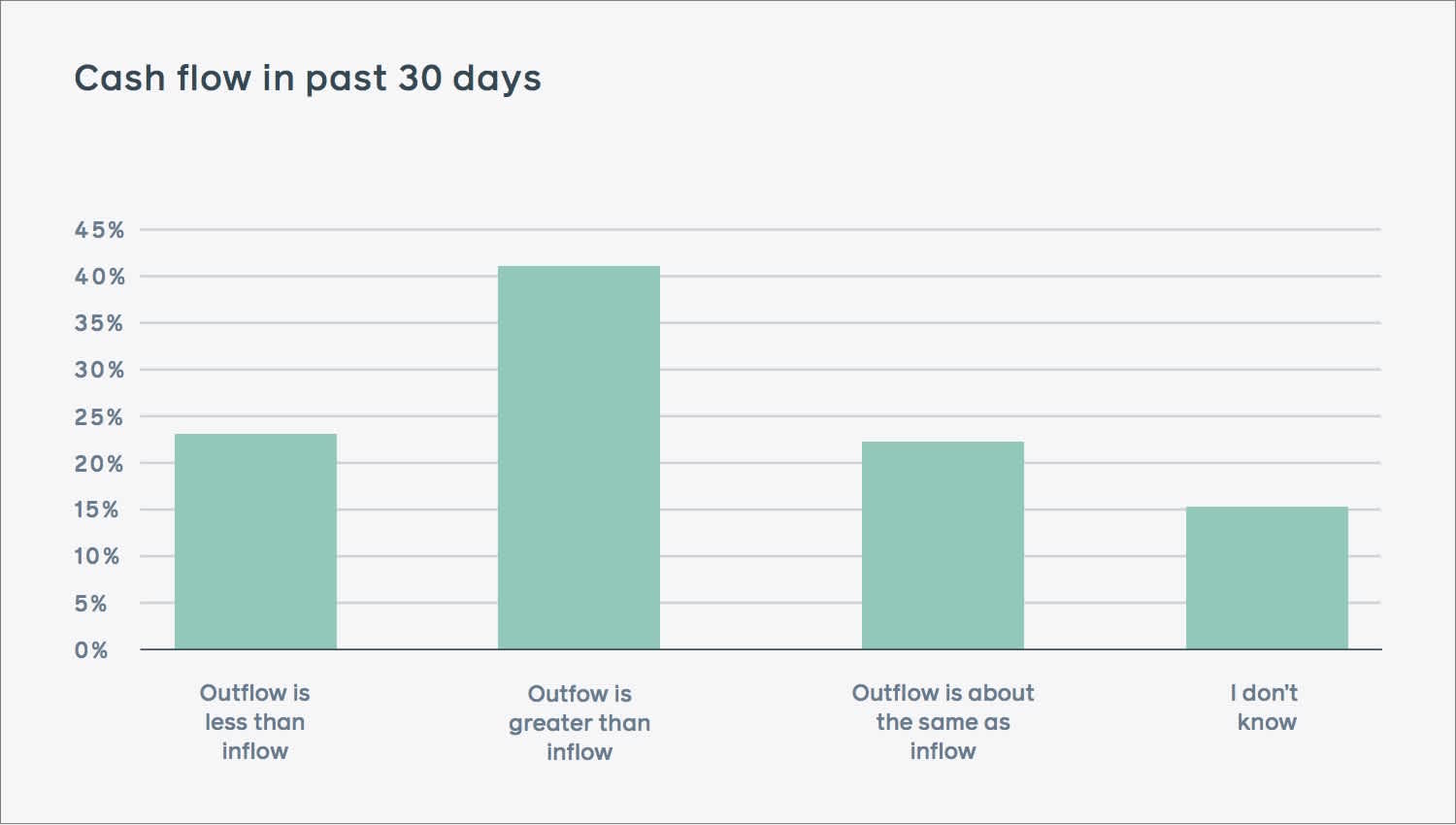
In order to alleviate these financial stresses, a lot of businesses are turning to institutions for help.
According to the report, half of SMBs (small- and medium-sized businesses) reported applying to government sources for capital support in the 30 days prior to the survey fielding, 11% for traditional bank loans, and 6% for capital grants from the private sector.
A number of large tech companies, like Facebook, Google, and more, have also stepped in to provide grants to entrepreneurs struggling with their expenses amind the pandemic.
In mid-March, Facebook announced $100 million in grants for small businesses, the majority of which will be distributed in cash, with some ad credits for business services. While Google announced a new $800+ million commitment to support SMBs just a little while later.
At Later, we created a COVID-19 resource page with details about our Customer Relief Program and other programs available to small businesses at this time. Check it out!
Small Business Challenges #3: To Adapt to the Ongoing Crisis, SMBs Are Turning to Internet Tools
One of the biggest trends to emerge during the COVID-19 pandemic is small businesses going online.
Mark Zuckerberg said as much during a recent Facebook Live address where he unveiled Facebook Shops, a new e-commerce feature will allow small businesses to build online stores on both Facebook and Instagram.
“We’re seeing a lot of businesses that never had online presences get online for the first time, and we’re seeing small businesses that had an online presence now make them their primary way of doing business,” he said.

Indeed, for many small businesses, the internet remains a lifeline, helping them to stay afloat during the pandemic.
According to Facebook’s report, in the 30-days prior to the survey fielding, 23% of businesses reported using digital ordering tools, 16% service delivery tools, and 37% digital payment tools. 36% of operational personal businesses that use online tools report that they are conducting all their sales online.
Interestingly, businesses led by women are more likely to be using digital tools, particularly with online advertising (43%) and digital payment tools (40%), compared to just 37% and 34%, respectively, of businesses led by men.

Of course, while digital tools can certainly help, they aren’t a cure-all solution.
According to the survey, about half of businesses (51%) report that a majority of interactions between clients and customers or employees and workers need to be conducted in the same physical location, meaning that these businesses can’t simply “go online.”
But we’ve also seen a lot of small businesses find creative ways to succeed during COVID-19, from expanding into new markets to finding new ways to deliver their products and services.
At the same time, a number of large technology companies like Facebook and Google are creating new ways for small businesses to connect with their customers.
Instagram launched food delivery & gift card stickers in mid-April, they rolled out a Support Small Businesses sticker in May, and, most recently, they announced a slew of new e-commerce tools for small businesses.

Again, while these new channels aren’t going to make up for all of the lost business, they can help. And for lots of small businesses during this period, this is the difference between staying afloat and going under.
Did you know you can plan, schedule, and auto-publish to Instagram with Later — for free!
Small Business Challenges #4: Balancing Running a Business & Caring For Their Households
One of the biggest challenges for small business owners has been balancing work with home life.
According to Facebook’s data, 10% of owners and managers of open businesses reported taking care of household members (children, elderly, dependent adults, and so on) as their chief concern. Nearly half (47%) of those reported feeling burned out trying to take care of business and household at the same time. And 29% were concerned about bringing COVID-19 home.
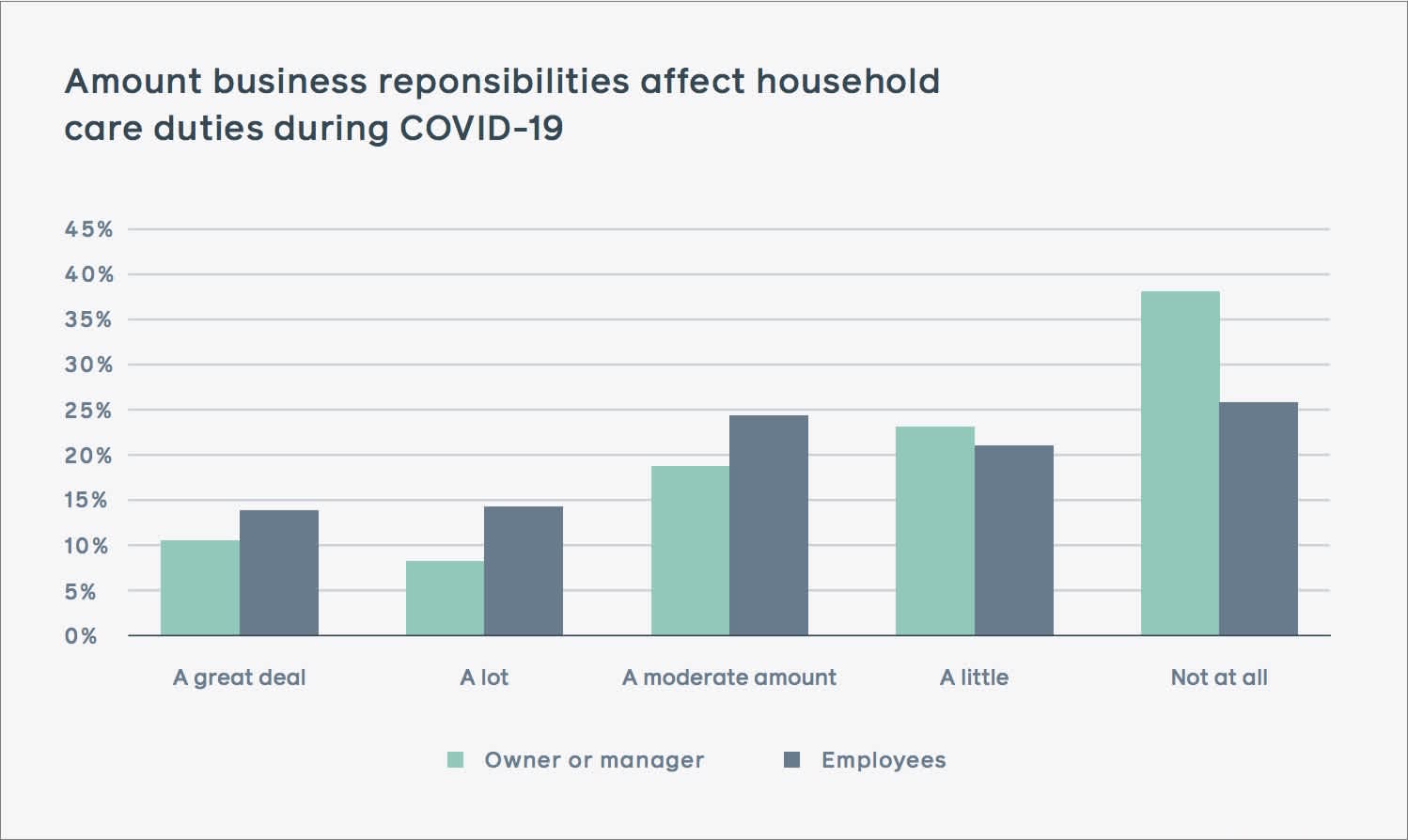
When asked how their household responsibilities affected their ability to focus on work, owners and managers reported that it affected them “a great deal” or “a lot” at a higher rate (29%) than employees generally (26%). Women owner-managers reported the same at 33% compared to 25% of men.
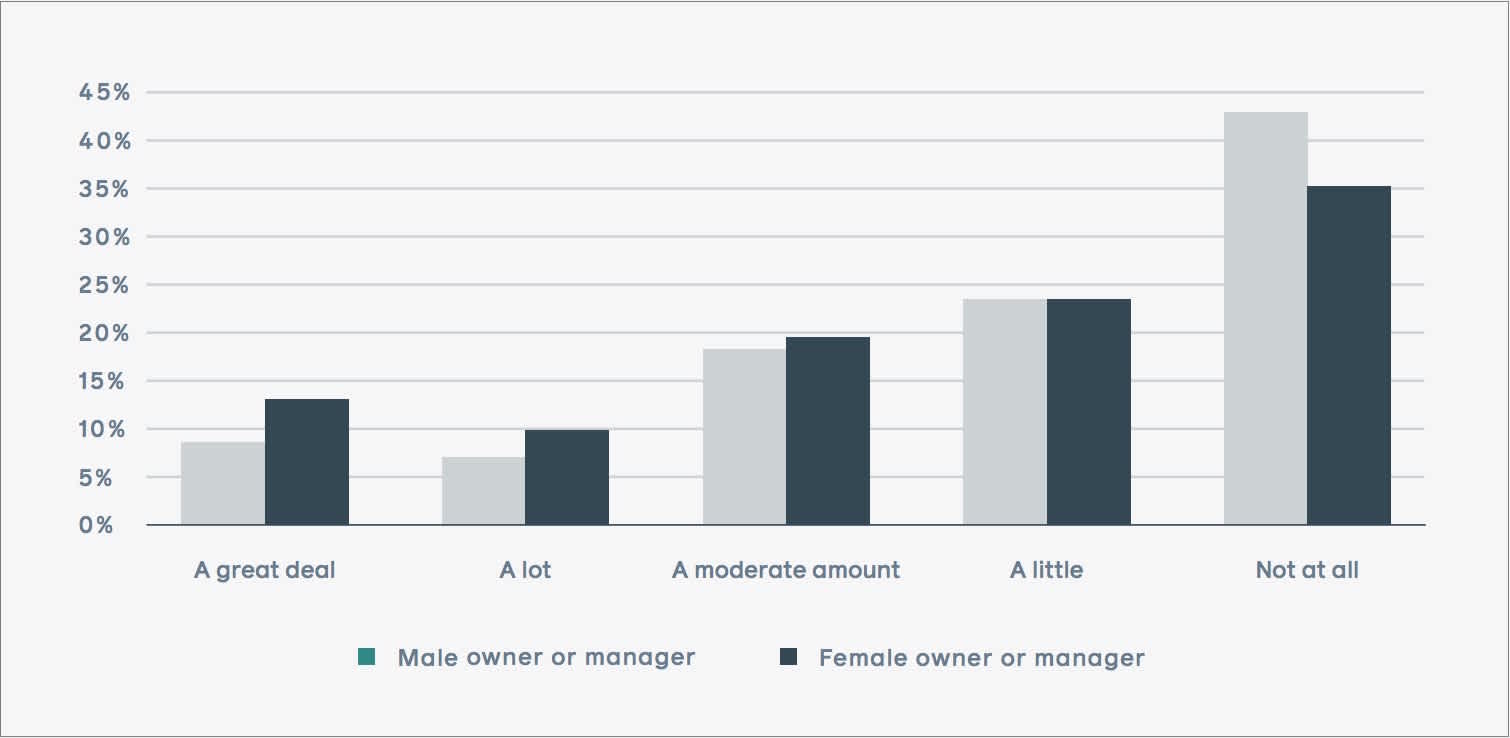
As for workload, 62% of respondents report spending 1 to 4 hours on domestic or household care activities. While a lower percentage of men (21%) and a higher percentage for women (29%) reported that household responsibilities significantly affected their ability to focus on work responsibilities.
These results highlight the “close links between personal obligations and business operations” and how the demands of home life can affect business owners — especially during a global pandemic.
As Facebook’s report states, “the needs of businesses are deeply intertwined with the obligations of the people who run them.”
In light of the recent collapse of divisions between work and home life, it’s so important to keep in mind how these stresses are impacting people’s mental health.
At Later, we’ve introduced several new initiatives in an effort to help combat the challenges that COVID-19 brings. From mental health recharge days to Facemask Friday video calls, and virtual happy hours, small efforts are made each day to lighten the load.
We’ve also spent a lot of time refreshing our working from home best practices, so being away from the office doesn’t feel so isolating.
Check out these resources and mental health tips for small businesses so you can protect your mental health and take care of your wellbeing.
Small Business Challenges #5: Employees are Facing Difficult Economic Circumstances
Even when businesses remain open, employees are experiencing financial cuts from lost employment or fewer hours worked.
According to Facebook’s report, while 3% of businesses reported that their employee headcount actually increased, 44% said they had to reduce the number of employees or workers at their business because of the pandemic. Of businesses that reduced headcounts, 22% let go of more than 10 people.
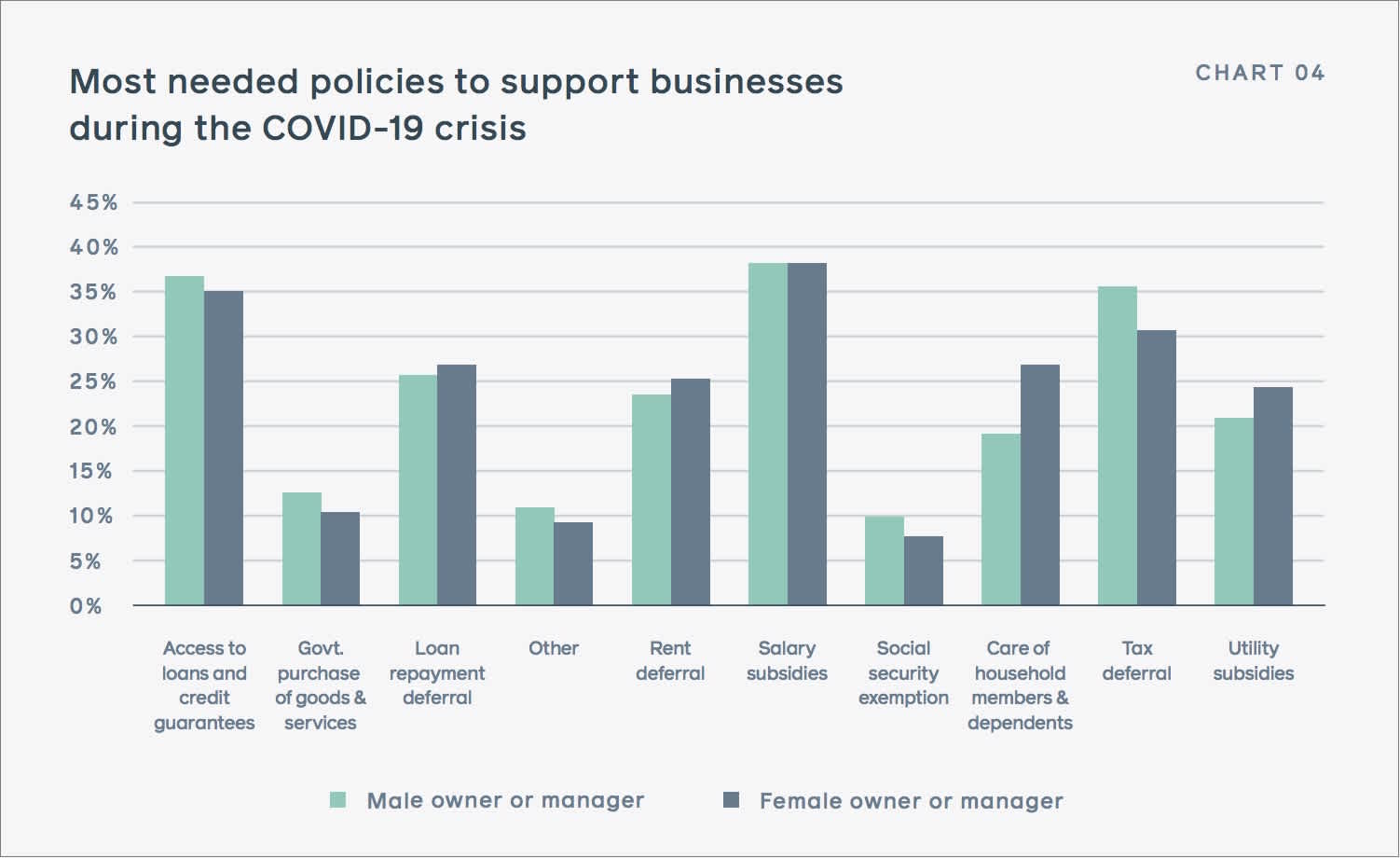
It’s important to remember that any time a business closes or has to lay off workers, it affects entire communities of people who rely on income from jobs to support themselves, and in turn, support other local businesses and organizations.
If you’re wanting to learn more about how to navigate employment during COVID-19, here are some excellent resources to check out:
Resources for job seekers and & employees, helpful blog posts from Glassdoor
Coronavirus resources hub, from LinkedIn
Community support during COVID-19, from Upwork
Small Business Challenges #6: Remaining Optimistic & Resilient
While Facebook’s report is mainly focused on the many challenges that SMBs face during the COVID-19 pandemic, there’s definitely a silver lining — a lot of businesses are still optimistic about the future!
In fact, the majority of small businesses (57%) report that they’re optimistic or extremely optimistic about the future of their businesses despite the COVID-19 crisis!
This positive outlook is incredible when you consider that 31% of small businesses said they had shut down operations as of April 2020.
But as Facebook writes, the people who operate, manage, and work for SMBs are resilient. “They’re finding new ways to reach their customers online, they’re making adjustments to how and when they do business, and they’re working hard to meet their family obligations at the same time.”
We’ll be sharing more tips about how to manage your business during this time through our newsletter and on our social channels at @latermedia. Have a question? Send us a tweet or a DM!



